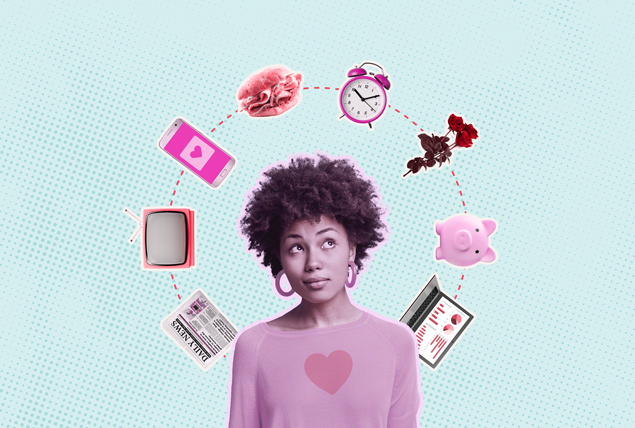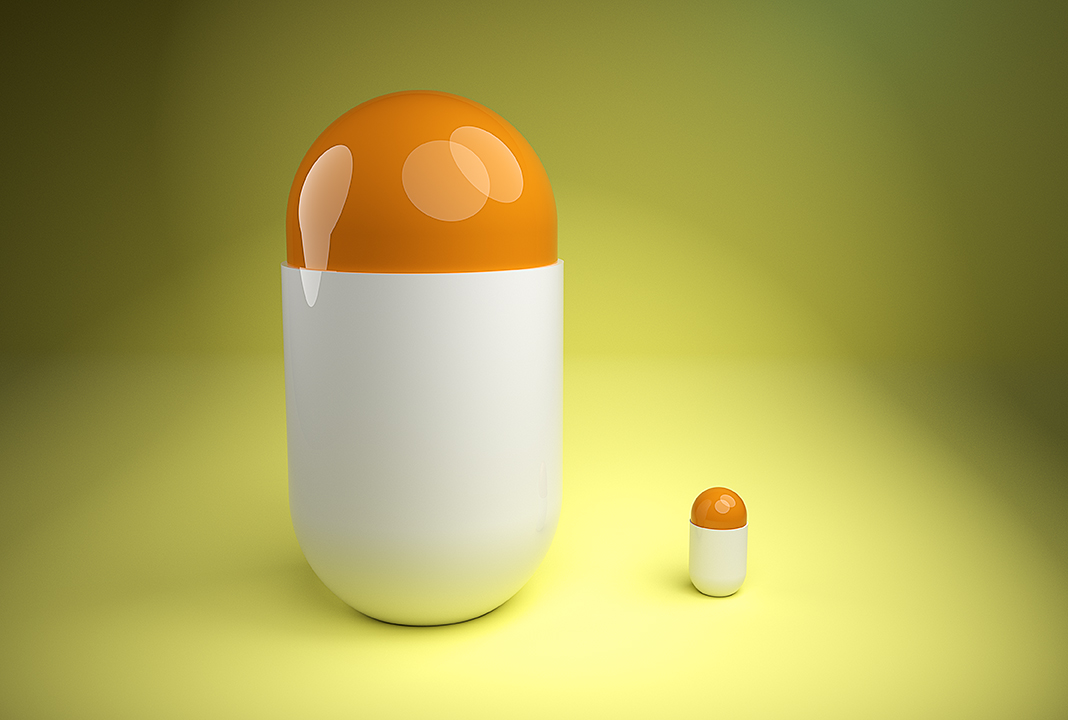Living and Dating with ADHD

The acronym ADHD represents attention-deficit/hyperactivity disorder, and the condition has been recognized since the late 1700s. However, it's only received serious acknowledgement in the past few decades, partly because of better methods of diagnosis and partly as a result of the sometimes devastating outcomes to a person's health and social and financial lives.
Research from 2021 indicated that early treatment and education can prevent many of these life-changing consequences.
John Kruse, M.D., Ph.D., a psychiatrist and neuroscientist with expertise in ADHD based in San Francisco, said the condition causes deficits in people's executive functions, such as memory, cognitive flexibility and inhibition. However, he noted the hallmark of ADHD is an interest-driven nervous system. Indeed, medical literature suggests the nervous systems of people with ADHD can't respond in the same way a neurotypical person would when tasks seem uninteresting.
The causes of ADHD are rarely clear-cut and it's usually found to be a result of multiple factors. In fact, a trained clinician makes a diagnosis through an in-depth investigation of past and current symptoms and behaviors. However, research published in 2021 indicated various genetic, environmental and toxin exposures may increase the risks of having ADHD.
Since ADHD can make you feel anger and loneliness—as well as anxiety, depression and emotional instability—it can drain your interest in sex and make intimate relationships harder for you to enjoy.;
Research from 2018 reported 43 percent of women with ADHD had issues with sexual function. The same study indicated 39 percent of men experienced the same issues.
It's difficult to predict the effects of ADHD on sexual health, as symptoms can vary from person to person. ADHD can lead to hypersexuality—excessive and compulsive sexual behavior—or hyposexuality, which is the complete opposite.
Living with ADHD
Having ADHD doesn't mean a person is broken. Rather, it means your nervous system functions differently than it does in neurotypical people, so you may need treatment and supportive measures to help you live well.
Awarded the Order of Canada for his groundbreaking medical work, Gabor Maté, M.D., is a speaker on addiction trauma, childhood development and the relationship between stress and illness. In his new book, "The Myth of Normal: Trauma, Illness & Healing in a Toxic Culture," he discusses how cultural and social issues may dictate the narrative of what a "normal" person ought to be. He points out that many diseases or conditions, such as ADHD, can be linked to societal stress and cultures that don't authentically embrace people. However, there is also evidence that ADHD has existed for a long time and can be a natural difference in a person's nervous system.
Both Kruse and Maté mentioned that our collective culture is constructed in a way that may not embrace the different nervous systems inherent in ADHD, leaving people with such conditions to figure out how to conform to societal norms that don't align easily with who they are.
Kruse also questioned the idea that a "normal brain" is more desirable. Nonetheless, he explained more people are receiving ADHD diagnoses because they must find ways to adapt to their respective societies. Treatment through medication, therapy and productivity support can help people with ADHD function well in current society.
To live well with ADHD, Kruse said he instructs his patients to receive a proper diagnosis and to take their prescribed medications. Behavioral therapy can help people manage symptoms and find ways to complete tasks, but you have to ensure you commit to the behavioral protocols. Finally, he recommended task lists using calendars and alarms as important tools to help the ADHD nervous system complete required tasks.
There may be numerous challenges in living with ADHD, but there is also the gift of hyperfocus.
People with ADHD have an interest-based nervous system, and they tend to hyperfocus on those interests for long periods of time, which means a lot can be accomplished. The downside is people with ADHD may forget to take care of themselves or complete other important tasks while hyperfocusing. But if you can use timers and task lists, the hyperfocus function can be turned into a distinct advantage.
Dating with ADHD
Dating and romantic relationships can be challenging for adults with ADHD, but once you understand your needs and limitations, they can be satisfying.
While dating someone new is often thrilling for anyone, an adult with ADHD may transform that attention to hyperfocus. While this makes things exciting for your partner at first, it may lead to overvaluing and smothering someone. Issues of impulsive decision-making in a relationship can lead to rapid discards of love interests, sexual violence, unprotected sex and communication difficulties.
Once an adult with ADHD becomes part of a committed relationship, there is also the risk that they will become easily bored once the "newness" is over.
However, there are several strategies a person with ADHD can use to navigate dating and relationships better:
- Go slow in the beginning so you don't get too caught up in hyperfocusing on the new relationship. Be sure to communicate more intentionally, know your needs, listen well and take the time to really get to know the new person in your life.
- Work with a therapist or find ways to learn how to communicate well. The better your communication skills are, the more you can navigate when things become emotionally charged or when boredom sets in.
- Learn to recognize an "ADHD-charged moment," such as not being able to control or regulate emotional responses to provocative stimuli or even boredom. The more you understand what makes this happen in the moment, the more you can take preventive actions.
- Work with a therapist to learn how to regulate your emotions. Adults with ADHD can easily become emotionally dysregulated and will need to learn skills to calm themselves down and make proper decisions in relationships.
As of now, there are no approved ways to prevent ADHD. The condition is engrained through genetics, prenatal environmental factors and some cultural factors. However, children diagnosed with ADHD can work with a therapist early on, which may prevent many of the adverse outcomes. The sooner a person receives medical treatment and learns skills in emotional regulation, task management and communication, the better off they will be.
Resources that can help with ADHD
Kruse recommends several online resources to his patients so they can cope better with ADHD and learn new skills. However, he stressed that the primary priority is to receive a proper diagnosis and work with a psychiatrist trained in diagnosing and treating the condition. The earlier the diagnosis and treatment begin, the better a person with ADHD can manage.
Kruse suggested the following effective resources:
- Local CHADD (Children and Adults with Attention-Deficit/Hyperactivity Disorder) groups can be very helpful in supporting children, their parents and adults with ADHD. The organization can help you find facilities for diagnosis and treatment as well as educational resources to help manage the condition. It provides training events, educational opportunities and support.
- ADDitude is an online magazine that is similar to the CHADD groups and provides education about diagnosis, treatment and resources.
- National Alliance on Mental Illness (NAMI) is a mental health organization that also provides resources and education about ADHD. You can find local professionals here as well.


















